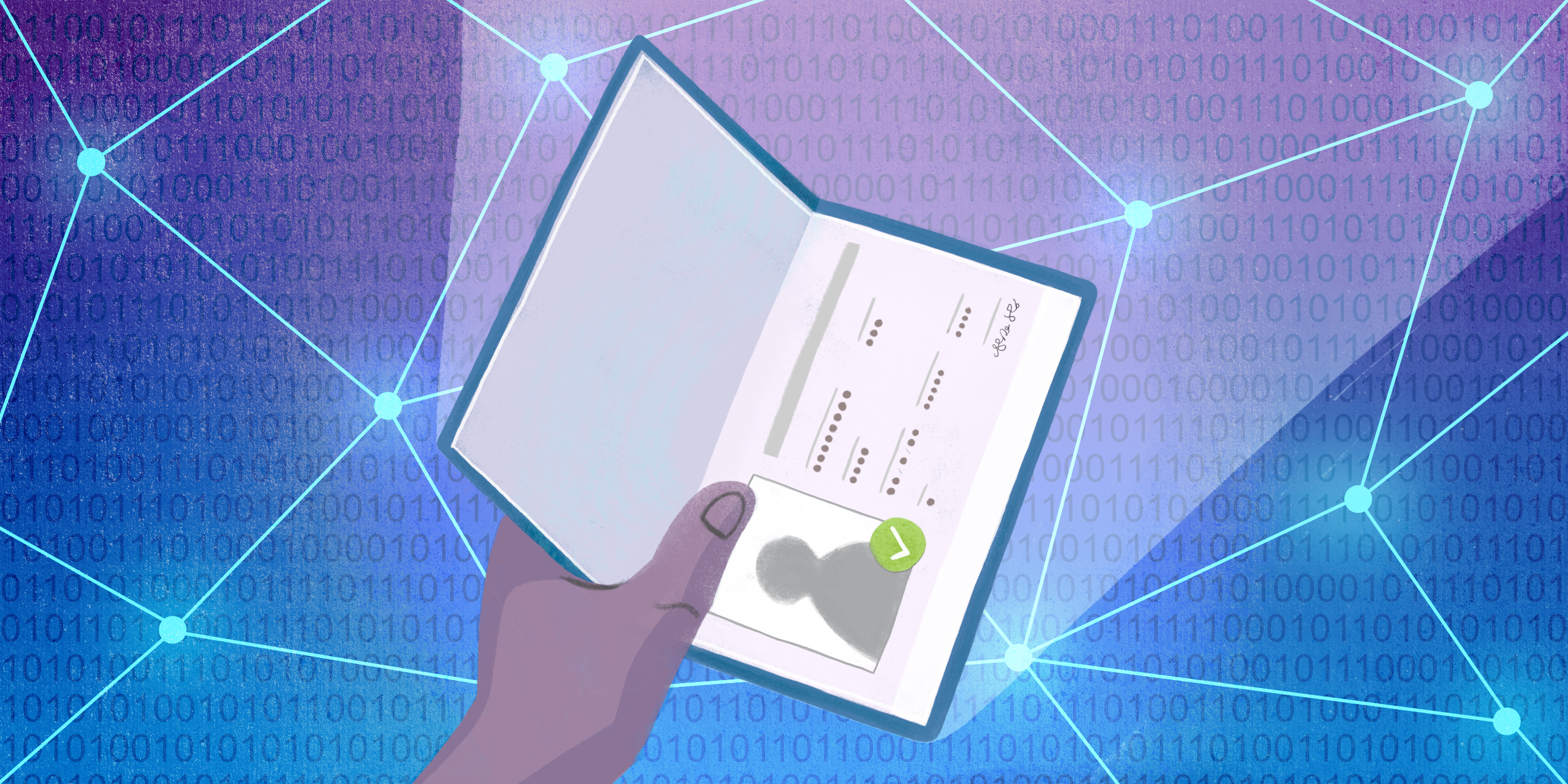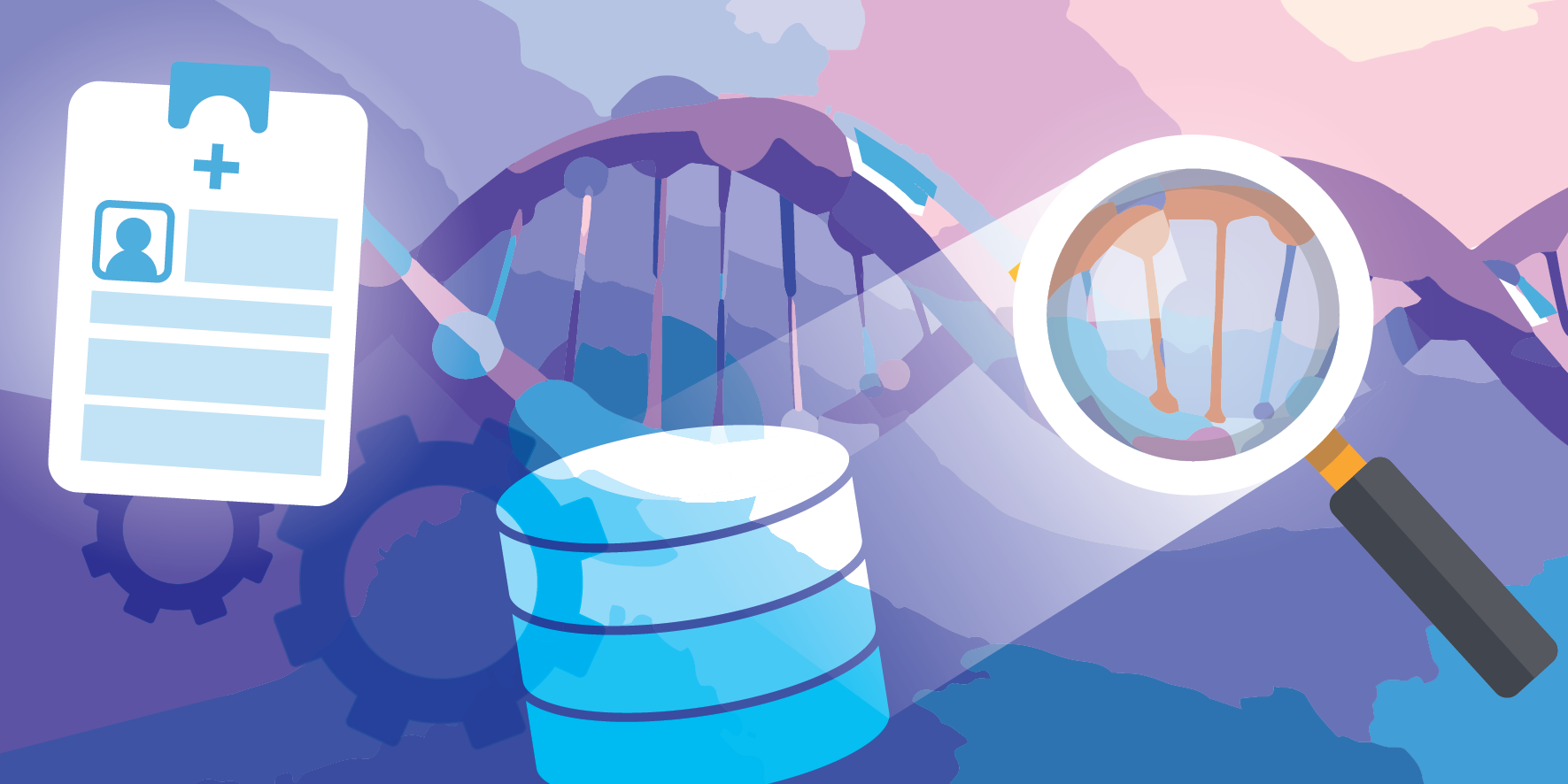About us
Learn how GA4GH helps expand responsible genomic data use to benefit human health.
Learn how GA4GH helps expand responsible genomic data use to benefit human health.
Our Strategic Road Map defines strategies, standards, and policy frameworks to support responsible global use of genomic and related health data.
Discover how a meeting of 50 leaders in genomics and medicine led to an alliance uniting more than 5,000 individuals and organisations to benefit human health.
GA4GH Inc. is a not-for-profit organisation that supports the global GA4GH community.
The GA4GH Council, consisting of the Executive Committee, Strategic Leadership Committee, and Product Steering Committee, guides our collaborative, globe-spanning alliance.
The Funders Forum brings together organisations that offer both financial support and strategic guidance.
The EDI Advisory Group responds to issues raised in the GA4GH community, finding equitable, inclusive ways to build products that benefit diverse groups.
Distributed across a number of Host Institutions, our staff team supports the mission and operations of GA4GH.
Curious who we are? Meet the people and organisations across six continents who make up GA4GH.
More than 500 organisations connected to genomics — in healthcare, research, patient advocacy, industry, and beyond — have signed onto the mission and vision of GA4GH as Organisational Members.
These core Organisational Members are genomic data initiatives that have committed resources to guide GA4GH work and pilot our products.
This subset of Organisational Members whose networks or infrastructure align with GA4GH priorities has made a long-term commitment to engaging with our community.
Local and national organisations assign experts to spend at least 30% of their time building GA4GH products.
Anyone working in genomics and related fields is invited to participate in our inclusive community by creating and using new products.
Wondering what GA4GH does? Learn how we find and overcome challenges to expanding responsible genomic data use for the benefit of human health.
Study Groups define needs. Participants survey the landscape of the genomics and health community and determine whether GA4GH can help.
Work Streams create products. Community members join together to develop technical standards, policy frameworks, and policy tools that overcome hurdles to international genomic data use.
GIF solves problems. Organisations in the forum pilot GA4GH products in real-world situations. Along the way, they troubleshoot products, suggest updates, and flag additional needs.
GIF Projects are community-led initiatives that put GA4GH products into practice in real-world scenarios.
The GIF AMA programme produces events and resources to address implementation questions and challenges.
NIF finds challenges and opportunities in genomics at a global scale. National programmes meet to share best practices, avoid incompatabilities, and help translate genomics into benefits for human health.
Communities of Interest find challenges and opportunities in areas such as rare disease, cancer, and infectious disease. Participants pinpoint real-world problems that would benefit from broad data use.
The Technical Alignment Subcommittee (TASC) supports harmonisation, interoperability, and technical alignment across GA4GH products.
Find out what’s happening with up to the minute meeting schedules for the GA4GH community.
See all our products — always free and open-source. Do you work on cloud genomics, data discovery, user access, data security or regulatory policy and ethics? Need to represent genomic, phenotypic, or clinical data? We’ve got a solution for you.
All GA4GH standards, frameworks, and tools follow the Product Development and Approval Process before being officially adopted.
Learn how other organisations have implemented GA4GH products to solve real-world problems.
Help us transform the future of genomic data use! See how GA4GH can benefit you — whether you’re using our products, writing our standards, subscribing to a newsletter, or more.
Join our community! Explore opportunities to participate in or lead GA4GH activities.
Help create new global standards and frameworks for responsible genomic data use.
Align your organisation with the GA4GH mission and vision.
Want to advance both your career and responsible genomic data sharing at the same time? See our open leadership opportunities.
Join our international team and help us advance genomic data use for the benefit of human health.
Discover current opportunities to engage with GA4GH. Share feedback on our products, apply for volunteer leadership roles, and contribute your expertise to shape the future of genomic data sharing.
Solve real problems by aligning your organisation with the world’s genomics standards. We offer software dvelopers both customisable and out-of-the-box solutions to help you get started.
Learn more about upcoming GA4GH events. See reports and recordings from our past events.
Speak directly to the global genomics and health community while supporting GA4GH strategy.
Be the first to hear about the latest GA4GH products, upcoming meetings, new initiatives, and more.
Questions? We would love to hear from you.
Read news, stories, and insights from the forefront of genomic and clinical data use.
Attend an upcoming GA4GH event, or view meeting reports from past events.
See new projects, updates, and calls for support from the Work Streams.
Read academic papers coauthored by GA4GH contributors.
Listen to our podcast OmicsXchange, featuring discussions from leaders in the world of genomics, health, and data sharing.
Check out our videos, then subscribe to our YouTube channel for more content.
View the latest GA4GH updates, Genomics and Health News, Implementation Notes, GDPR Briefs, and more.
Discover all things GA4GH: explore our news, events, videos, podcasts, announcements, publications, and newsletters.
17 Dec 2019
The GA4GH Steering Committee has approved the GA4GH Passports and Authentication & Authorization Infrastructure (AAI) specifications produced by the GA4GH Data Use & Researcher Identities (DURI) and Data Security Work Streams, respectively. The two standards work in conjunction to reliably authenticate a researcher’s digital identity and automate their access to a requested genomic dataset.

The GA4GH Steering Committee has approved the GA4GH Passports and Authentication & Authorization Infrastructure (AAI) specifications produced by the GA4GH Data Use & Researcher Identities (DURI) and Data Security Work Streams, respectively. The two standards work in conjunction to reliably authenticate a researcher’s digital identity and automate their access to a requested genomic dataset.
Currently, Data Access Committees (DACs) at data repositories such as the European Genome-Phenome Archive (EGA) or the NIH Database of Genotypes and Phenotypes (dbGaP) grant access to research data on a project basis, reviewing each research team’s proposed project before granting access to a dataset (See video: “Why DACs?”). DACs often have a difficult time verifying and validating the applicant researcher’s identity such that processing a single request can take months—multiply that by thousands of researchers requesting access and you’re quickly met with an unscalable and unsustainable process. Furthermore, DAC approval is limited to a single project, meaning submission, review, and approval must be repeated each time a researcher wants to access the data.
In order to leverage the vast genomic data and computational resources available today, data access and its ability to scale are crucial. The amount of genomic data generated around the globe is growing exponentially, which will lead to proportional increases in the number of data access requests.
The new standards introduce a level of efficiency by supporting automation of the data access process. AAI lays the foundation for a federated mechanism for authenticating an individual’s identity and authorizing their access to an underlying dataset. Building on the OpenID Connect standard maintained by the OpenID Foundation, GA4GH’s AAI specification introduces the concept of an “access token” that can be passed around the internet and repurposed for subsequent data access requests without additional manual labor.
“Importantly, GA4GH AAI is ‘domain agnostic,’ meaning it can be applied to any type of dataset, genomic or otherwise,” said David Bernick, Chief Security Officer at the Broad Institute of MIT and Harvard, co-lead of the GA4GH Data Security Work Stream, and AAI product lead.
The GA4GH Passports specification then takes AAI and layers on requirements related to access policy. Whereas AAI provides the mechanism to have a user identify themselves by logging in and transporting claims about the user, Passports provide the data format to allow those user claims to be permissions related to datasets, user roles, resources, and more.
“The GA4GH Passport uses the AAI access token to transport a researcher’s digital identity and permissions across organizations, tools, and environments and then maps access to data across these,” said Craig Voisin, a software engineer at Google and co-lead of the RI Subgroup of the DURI Work Stream. “Furthermore, it handles federation: there can be multiple organizations, multiple tools, and multiple environments that can all work together within one pipeline analysis.”
Similar to the country visas familiar to international travelers, the GA4GH Visa can be used again and again to enter a space for some time-limited window—they can last minutes, days, or years and allow researchers to ‘enter’ into a specific digital environment. For example, a researcher can combine data between two or more datasets spanning multiple clouds, provided they have been authorized to access each. Some of these may use different tools to evaluate passports and deliver access permissions.
The GA4GH Passport specification enables this process for both registered- and controlled-access datasets. For registered access, a passport clearinghouse—the entity that vets a user’s passport—must only verify that the individual (a) is a bona fide researcher and (b) has agreed to a set of ethics terms (as previously established by the GA4GH Regulatory & Ethics Work Stream).
On the other hand, access to controlled datasets is limited to approved uses for a specific research project and research team. In this case, the clearinghouse must verify the researcher’s dataset access visas, which provide authorization to use the data.
“We are really moving the needle with the Passports’ bona fide researcher Registered Access status, which is basically an access pass to use many datasets without the need for case-by-case review,” said Stephanie Dyke, ethics & policy researcher at McGill University and co-lead of the RI Subgroup of the DURI Work Stream. “Registered Access status should accelerate access for researchers around the world, and we are currently extending the concept for clinical care professionals too.”
Working together with other DURI Work Stream standards, including the approved GA4GH Data Use Ontology (DUO), the Passports and AAI specifications standardize data access and use restrictions, streamline authorization and authentication processes, and aim to reduce the time DACs must spend to make data access decisions.
“We anticipate that the Passports and AAI specifications will further our progress towards improving data access by helping Data Access Committees and data services automate their processes,” said Tommi Nyrönen, head of ELIXIR Finland and co-lead of the DURI Work Stream. “While DACs will still review data access requests, standardisation of the identity and access token content in Passports will significantly expedite the request process and move us closer towards automation. The standards make it easier to share and access data across the world, which helps advance our research and our collective understanding of human health and disease.”
